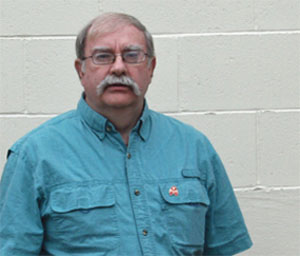HOME
PAST DIGITAL ISSUES
HIV/AIDS HOTLINES
HIV 101
POSITIVE PROFILES
ASO SPOTLIGHT
RECENT ARTICLES
HOW TO PAY FOR HIV TREATMENT AND MEDICATIONS
ADAP CRITERIA AND FORMULARIES
ASO LISTINGS
REVIEW OF HIV MEDICATIONS
2018 HIV/AIDS FUNDRAISING ACTIVITIES & EVENTS
ABOUT HIV POSITIVE! MAGAZINE
LINKS
SUBSCRIBE
CONTACT US
ADVERTISER INFORMATION
 Steve Hoke has been HIV-positive for nearly as long as the disease has been in existence.
Steve Hoke has been HIV-positive for nearly as long as the disease has been in existence.
“I’m sure I was infected in 1981 or 1982, when my partner and I attended Gay Pride events in San Francisco and New York,” Steve says. “At that time, condoms were only talked about as a means to prevent pregnancy. No one even discussed using them in gay sex.”
Steve actually tested positive in 1987, when his partner came down with PCP pneumonia and was told he had only three to six months to live. “AZT was approved by the FDA the week after my partner got out of the hospital,” Steve says. “I got him a prescription, set the alarm clock to make sure he took his doses on time – and it worked. He lived for another three-and-a-half years. We did all the things we had planned to do when we got older. We went to Hawaii.”
When he was first diagnosed, Steve didn’t know anything about HIV or AIDS.
“I’m from southern Indiana, right across the river from Louisville, Kentucky,” Steve says. “There in the Midwest, there just wasn’t any information available. I got on the computer and started learning everything I could, and I’ve never stopped.”
In 1996, Steve came down with toxoplasmosis. It affected him like a stroke, and it took a year of physical therapy before he could walk normally again. In 2004, he had a hip replacement. But through all his own physical challenges, he has dedicated himself to helping others with HIV, starting in Louisville, KY, and continuing in Florida, where he lives today. He does volunteer work with the Area 15 AIDS Consortium, he is a Consumer Advocate Group member, and he represents Area 15 on a number of state HIV and AIDS groups and committees.
Steve is totally open about his HIV status, and he regularly makes himself available to those who are newly diagnosed in his area.
“I’ve been living with HIV for more than 25 years,” Steve says. “But people who are newly diagnosed still think they have six months to live. I go to support groups, and I give everyone my card. They can call me any time. If their brothers or sisters or nieces or nephews have questions, they can call me, too. If I don’t have the answer, I can find it.”
We asked Steve what advice he would give to someone newly diagnosed with HIV.
“Find a way to calm down,” Steve says. “When you’re first diagnosed, your mind just goes crazy. You have to find a way to slow it down. Personally, I go to the beach and do visualization exercises. I just let all the bad things go out and all the good things come in.”
“Learn as much as you can,” Steve continues. “Start taking medications, if that’s what your physician advises. Find yourself a support system. Many people feel they can’t go to their family. That’s OK, but you need to find a support group, talk to people who have dealt with this.”
“Above all,” Steve says, “Don’t give up! Years ago, many people just gave up and they didn’t last more than three to six months. Today, with the medications we have, you can live an almost normal life. I’m 59, and I may live to be 90. It’s not like it was in the 1980s and early 1990s. With the meds now, you’ve got a good possibility of living a long, full life.”
Copyright 2018, Positive Health Publications, Inc.
This magazine is intended to enhance your relationship with your doctor - not replace it! Medical treatments and products should always be discussed with a licensed physician who has experience treating HIV and AIDS!